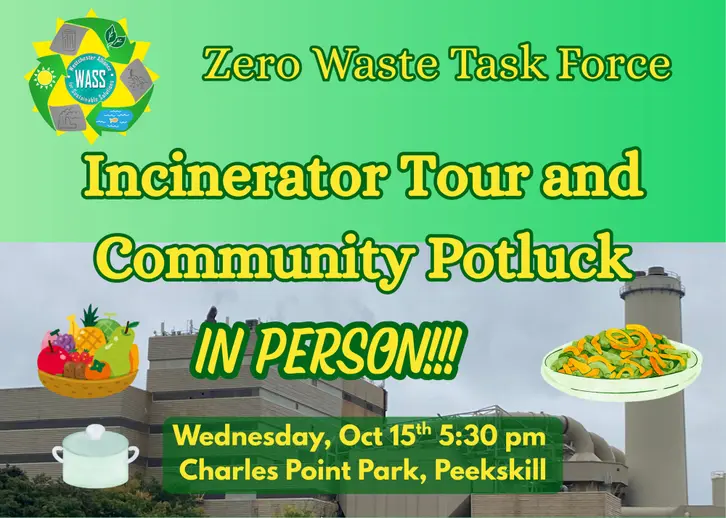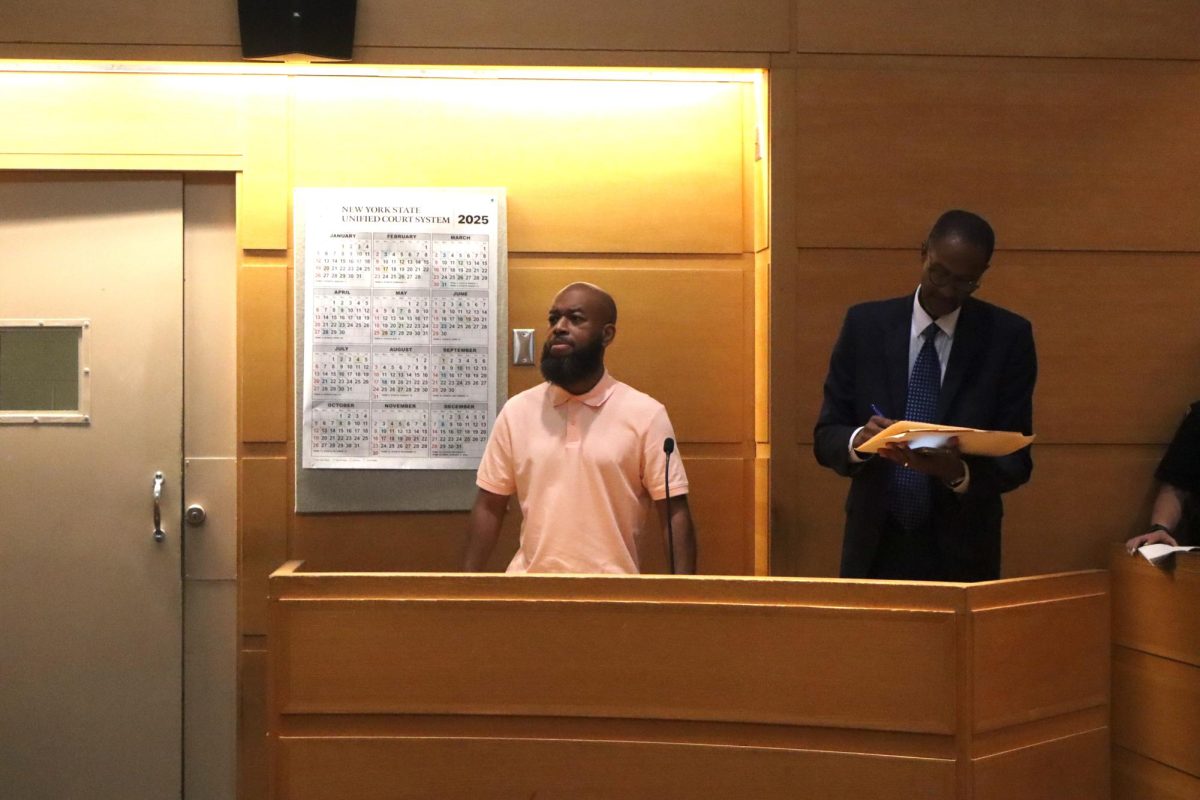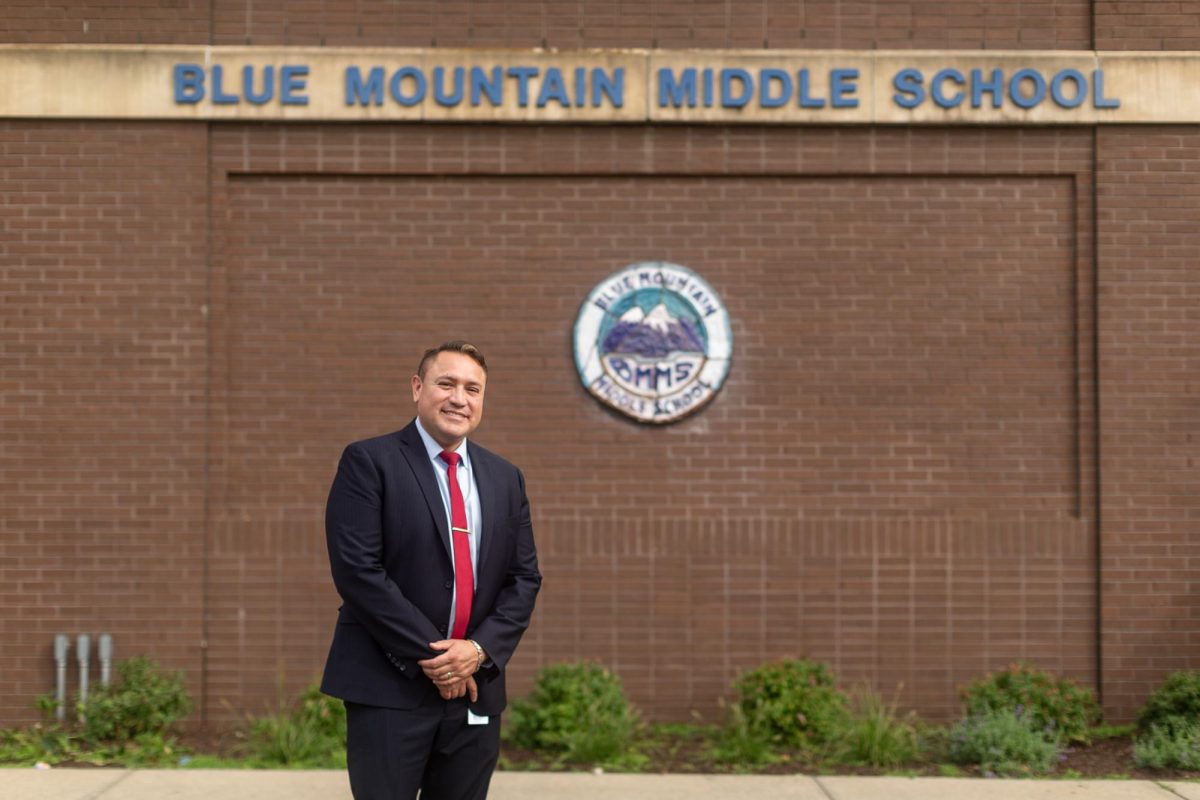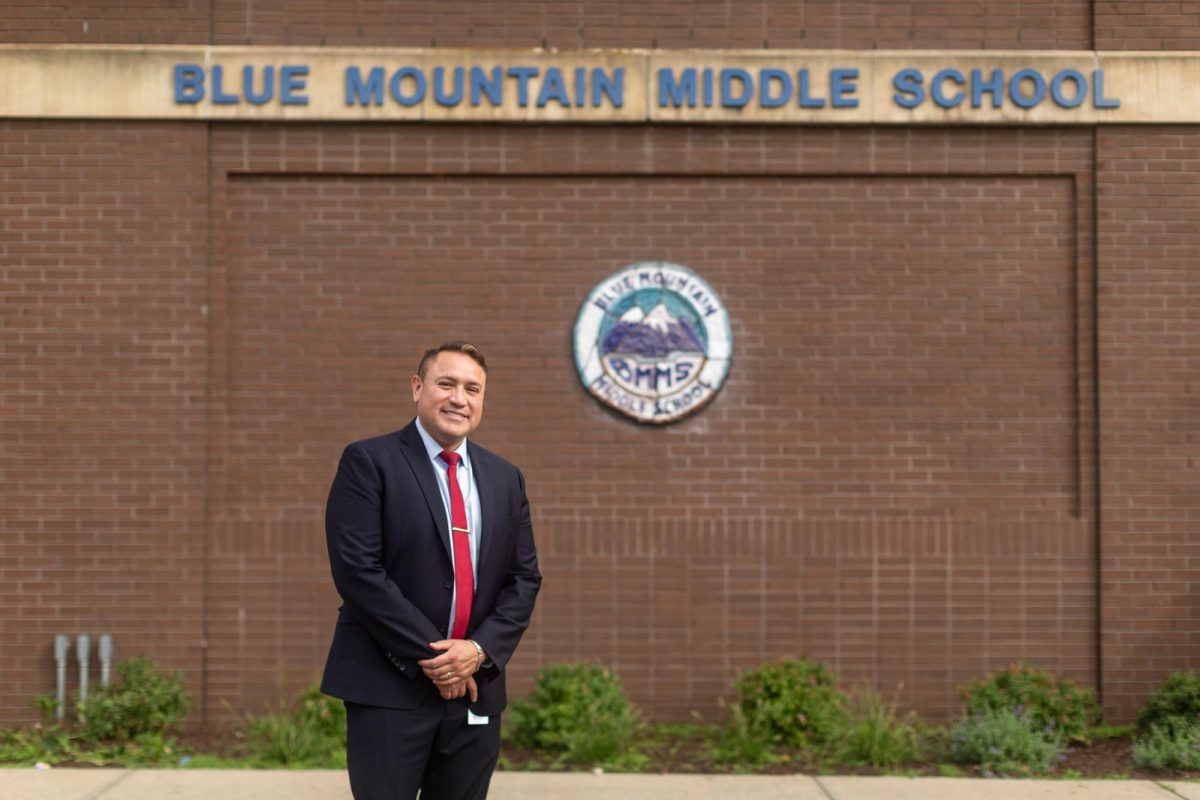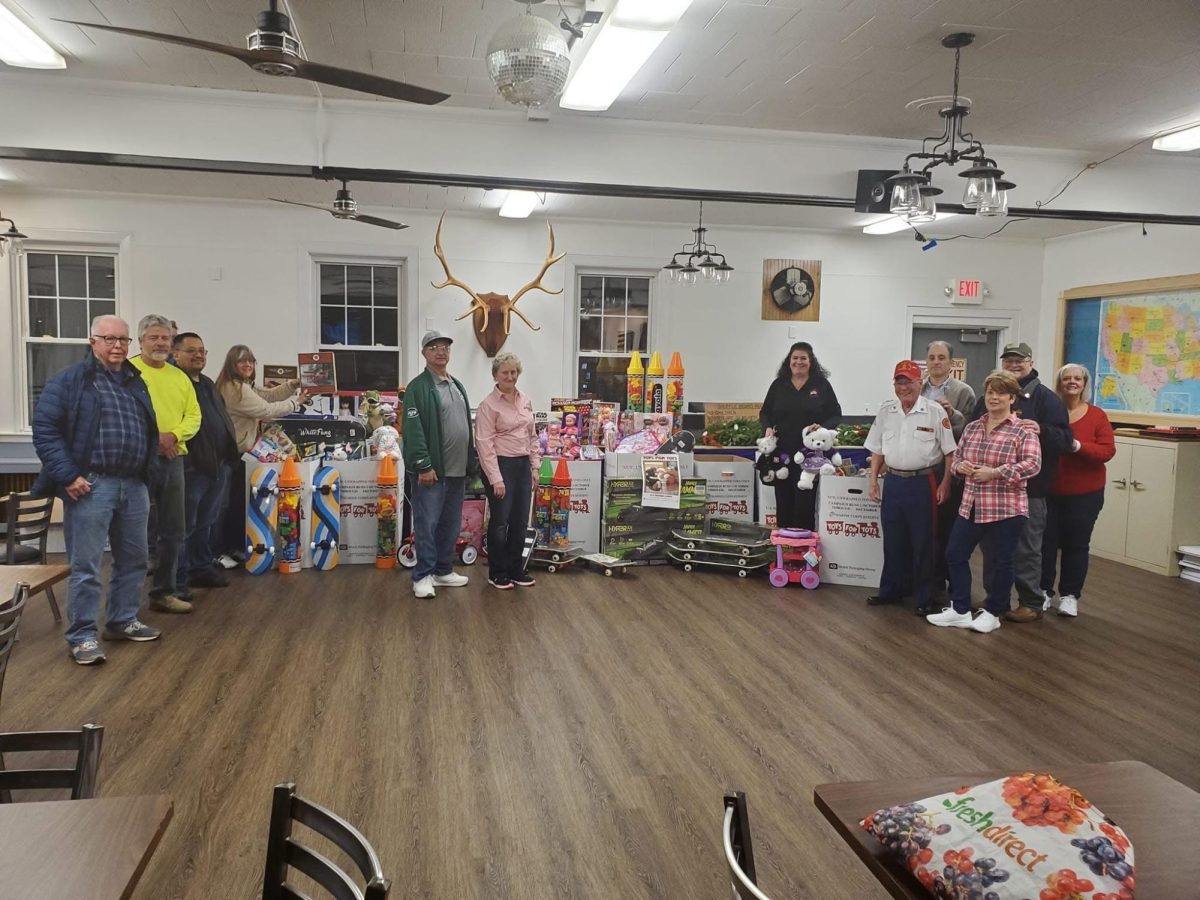The column of smoke rises steadily and thickly at Charles Point. This gray-hued landscape will greet attendees of the “Peekskill Incinerator Tour and Community Potluck,” the name given by the Zero Waste Working Group of the Westchester Alliance for Sustainable Solutions (WASS) to the educational event taking place on Oct. 15. Although labeled a “tour,” the activity in fact will consist of a walk around the exterior of the facility, focusing on its environmental impact and role in local waste management.
The event is designed to spark a community conversation about sustainability and waste reduction. Participants will gather near the site beginning at 5:30 p.m., where a discussion about local waste practices will take place.

The walk, open to the general public, focuses on the county waste incinerator, a facility that processes approximately 2,250 tons of waste per day. According to a report by Energy Justice Network, in 2020, about 80 percent of the waste burned at the facility originated from Westchester County, while roughly 19 percent came from Connecticut. The remaining one percent was distributed among the New York State counties of Dutchess, Orange, Putnam, and Rockland.
The incinerator, currently operated by WIN Waste Innovations (formerly Wheelabrator), burns waste to generate electricity that is then distributed to the grid. In public statements, the company has defended its operations, highlighting its capacity to generate energy from waste and its compliance with applicable environmental regulations.
However, according to the Westchester Alliance for Sustainable Solutions (WASS), the facility has been operating with an expired air permit since 2021 and continues to emit carbon monoxide, sulfur dioxide, heavy metals, particulate matter, greenhouse gases, and volatile organic compounds. “It is one of the largest industrial polluters in the county of each of these substances,” said Travis Carpenter, spokesperson for WASS. “Compared to other Westchester municipalities, Peekskill residents suffer abnormally high rates of asthma, COPD, and other respiratory issues which can be linked to these emissions and are exacerbated by them.”
Carpenter emphasized that the walk will only cover the exterior of the incinerator, providing participants with explanations about how the facility operates. He added: “This gathering is indeed an educational event, not a protest, and it is also an act of community through the potluck portion.”
Following the walk, a community dinner will take place. Participants are invited to bring a homemade dish to share and portable chairs. According to the organizers, the purpose of the potluck is to create a horizontal space for community dialogue on the future of waste management and potential alternatives within the “zero waste” model. “It puts people face to face with the source of the environmental issue, but also with peers and neighbors who can work together to strengthen the connections and enrich the action,” said Carpenter.
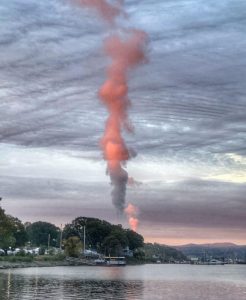
In recent years, the group has conducted field activities focused on understanding the waste cycle and measuring environmental impact. In 2024, Westchester County budgeted $90,000 for a study on how it can improve its solid waste management practices, while also defining a long-term waste reduction strategy. WASS claims that initiative resulted partly from its advocacy efforts. “Our work helped push Westchester County to budget $90,000 to study how it can improve its solid waste management practices,” Carpenter said.
The Charles Point facility has been in operation since 1984 and remains one of the county’s primary industrial emission sources. In 2021, a report —referenced by WASS’s Carpenter— documented that Peekskill was the community most affected by incinerator-related pollution, with asthma rates above the Westchester average and a sustained record of citizen complaints.
Carpenter said WASS believes the challenge lies not only in waste management but also in policy inertia. “Peekskill is affected by the county’s decision to rely on the incinerator for solid waste disposal, and it will take the county government establishing Zero Waste practices to end this reliance,” he said.
For the Oct. 15 event, organizers say they aim to educate members of the public about the benefits of Zero Waste systems. Interested participants may email [email protected] to register or receive additional information.


